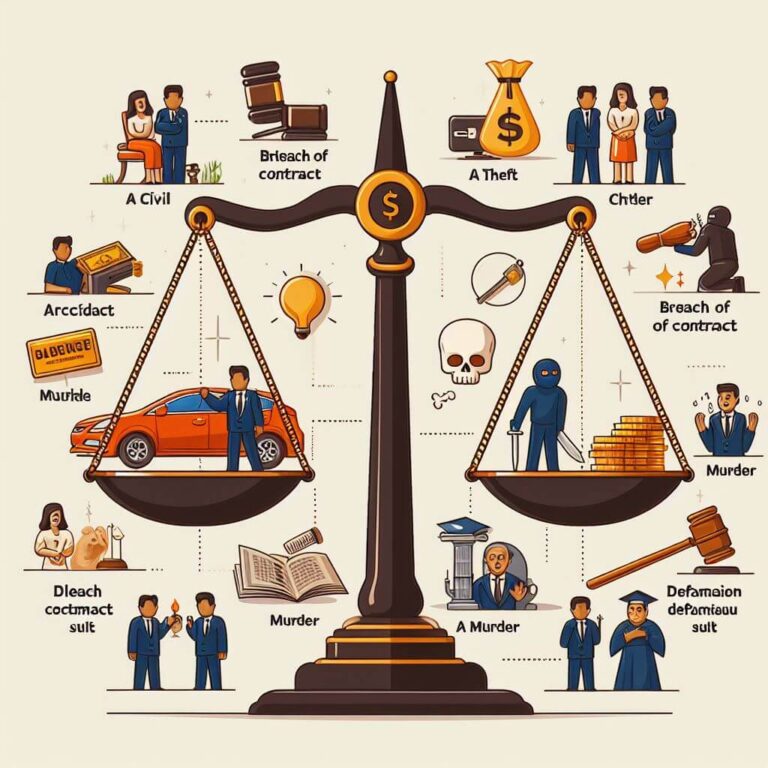In this article we have explained in detail What is FIR Quashing and How Does it work
What is FIR Quashing and How Does it Work?
Understanding FIR in the Legal System
An FIR (First Information Report) is a critical document in the legal system, serving as the first step in a criminal case. It is a written document prepared by the police when they receive information about the commission of a cognizable offence.
The Concept of FIR Quashing
Quashing an FIR refers to the legal process of nullifying or setting aside an FIR based on various legal grounds. This process is crucial as it can prevent unnecessary legal proceedings and hardships for individuals wrongly accused or when the case lacks sufficient evidence or legal basis.
Legal Grounds for FIR Quashing
Judicial Intervention in FIR Quashing
The High Court has the power to quash an FIR under Section 482 of the Criminal Procedure Code, 1973. This power is exercised sparingly and only in cases where continuing the proceedings would be an abuse of the process of the court or where the ends of justice demand that the FIR be quashed.
Common Grounds for FIR Quashing
- Lack of Evidence: If there is insufficient evidence to support the allegations in the FIR, it can be quashed.
- Compromise Between Parties: In cases like matrimonial disputes or certain financial disputes, if there is a genuine settlement between parties, the FIR might be quashed.
- Malicious Prosecution: FIRs filed with a malicious intent, without any real ground, can be quashed to prevent misuse of the legal system.
- Jurisdictional Issues: If the crime did not occur in the jurisdiction of the police station where the FIR was filed, it could be quashed.
The Process of FIR Quashing
Filing a Quashing Petition
To initiate FIR quashing, a petition must be filed in the respective High Court. The petition should clearly state the reasons for seeking quashing, supported by relevant legal provisions and judgments.
Court Proceedings for Quashing FIR
The High Court examines the FIR, the allegations, and the evidence available. It also considers whether there is a prima facie case against the accused and if the continuance of the proceedings would lead to an abuse of the process of law.
Implications and Outcomes of FIR Quashing
Legal Relief and Justice
Quashing an FIR provides relief to falsely accused individuals and ensures that justice is served by preventing unwarranted prosecution.
Finality and Closure
Once an FIR is quashed, it brings finality to the matter, and no further legal proceedings can be initiated based on the same allegations.
Conclusion
The Significance of FIR Quashing in the Legal System
FIR quashing is a vital legal remedy that protects individuals from unnecessary legal hassles and upholds the integrity of the judicial system. It ensures that justice prevails by preventing the misuse of the legal process and providing relief to those wrongly entangled in legal proceedings.
FAQs on FIR Quashing
- What is an FIR?
An FIR, or First Information Report, is a document prepared by police to initiate an investigation into a cognizable offense. - What does quashing an FIR mean?
Quashing an FIR means legally nullifying it, effectively ending the criminal proceedings initiated by that FIR. - Who has the authority to quash an FIR?
Typically, a High Court has the authority to quash an FIR under Section 482 of the Criminal Procedure Code. - Can a lower court quash an FIR?
No, lower courts do not have the authority to quash FIRs. This power is reserved for High Courts. - What are common grounds for FIR quashing?
Common grounds include lack of evidence, a compromise between parties, malicious intent in filing the FIR, and jurisdictional issues. - Is quashing an FIR common in matrimonial disputes?
Yes, FIRs in matrimonial disputes are often quashed when parties reach a compromise. - Can FIR be quashed on the basis of a settlement?
Yes, if parties involved in a dispute reach a settlement, the FIR can be quashed. - What is the role of the High Court in FIR quashing?
The High Court examines the FIR, evidence, and legal grounds presented to decide whether to quash the FIR. - How is a quashing petition filed?
A quashing petition is filed in the High Court stating reasons for quashing, supported by relevant legal provisions and judgments. - Can an FIR be quashed for minor offenses?
Yes, FIRs related to minor offenses can be quashed, especially if there is a compromise or lack of evidence. - What happens after an FIR is quashed?
Once an FIR is quashed, the criminal proceedings initiated by that FIR are terminated. - Can a quashed FIR be revived?
Generally, a quashed FIR cannot be revived. The decision is usually final. - Does quashing an FIR require the accused’s presence in court?
Not always. It depends on the court’s requirement and the nature of the case. - Can an FIR be quashed without going to court?
No, quashing an FIR requires a judicial process and a court order. - How long does the FIR quashing process take?
The duration varies based on case complexity and court schedules. - Is an advocate required to quash an FIR?
Yes, it is advisable to have legal representation for this process. - Can police refuse to quash an FIR?
Police cannot quash an FIR; only a High Court can. - What is Section 482 of the Criminal Procedure Code?
Section 482 preserves the inherent powers of the High Court to prevent abuse of process or to secure the ends of justice. - Can an FIR be quashed on the basis of a delay in filing?
A significant delay in filing an FIR can be a ground for quashing, but it depends on the case specifics. - Are all FIRs eligible for quashing?
No, eligibility depends on legal grounds and the nature of the offense. - What if the FIR contains false allegations?
If proven false, such FIRs can be quashed for being maliciously filed. - Can a victim request for FIR quashing?
Yes, a victim can request FIR quashing, especially in compromise situations. - What evidence is required for FIR quashing?
Evidence varies but generally includes documents or facts proving the grounds for quashing. - Does FIR quashing affect the accused’s criminal record?
If quashed, the FIR does not lead to a criminal record for the accused. - Can an FIR be quashed for non-cognizable offenses?
FIRs for non-cognizable offenses are less common, but quashing principles apply similarly. - Is a public prosecutor involved in FIR quashing?
Yes, a public prosecutor may be involved to represent the state’s interest. - What is the difference between FIR dismissal and quashing?
FIR dismissal is a police action for lack of evidence, while quashing is a judicial process. - Can FIR quashing be appealed?
An FIR quashing order by the High Court can be challenged in the Supreme Court. - Does FIR quashing require a hearing?
Yes, a hearing is typically required where both parties can present their arguments. -
Is there a time limit for applying for FIR quashing?
There is no specific time limit, but it’s advisable to apply as soon as the grounds for quashing become apparent.
















